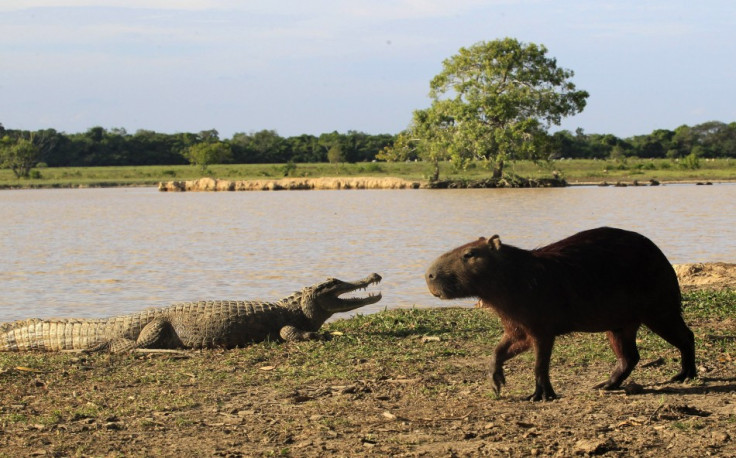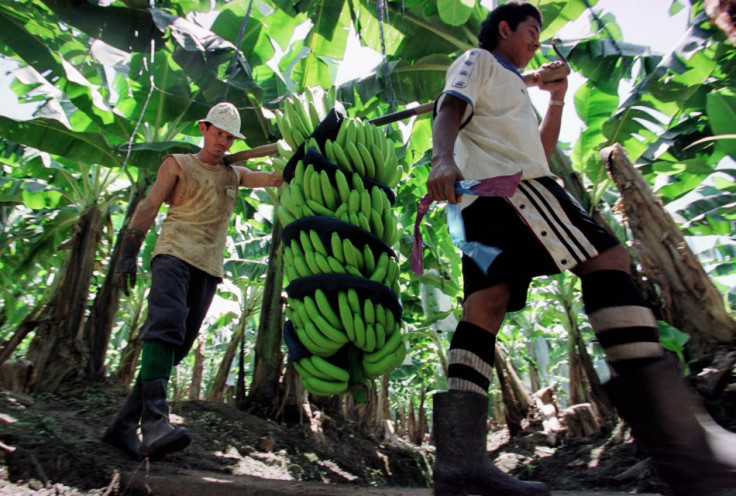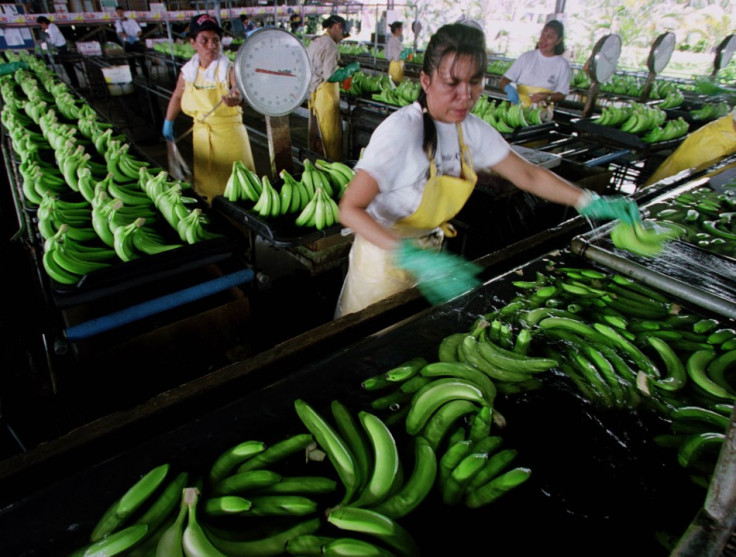Costa Rican Crocs Threatened by Bananas

Crocodilians in Costa Rica are being threatened by bananas farmed in the Central American country.
Caiman, one of the most common species of crocodilian in Central America, have been found to have high levels of pesticide in their blood, which causes health problems in the predator.
The reason for these high levels is the increased demand for bananas across the globe.
Over £10bn is spent on bananas every year and to meet this demand, farmers in Costa Rica have turned to the intensive use of pesticide for better crop yield.
Pesticide use has doubled in Central America in the last 20 years and Costa Rica now ranks second in the world for the intensity of its use. Farmers also regularly use banned pesticides.
Paul Grant, from South Africa's Stellenbosch University, said: "Banana plantations are big business in Costa Rica, which exports an estimated 1.8 million tonnes per year; 10% of the global total.

"The climate of the country's North East is ideal for bananas; however, the Rio Suerte, which flows through this major banana producing area, drains into the Tortuguero Conservation Area."
Caiman living in Tortugero are highly adaptive and feed on fish, crustaceans and occasionally wild pigs.
Grant, lead author of the study, said: "Frequent heavy rains can wash pesticides from plantation areas, leading to contamination and the reapplication of sprays to the crops.
"Without adequate enforcement of regulations, dangerous practices such as aerial spraying close to streams or washing application equipment in rivers also contributes to contamination downstream."
Blood samples taken from 14 adult caiman were analysed for traces of pesticide. Those living closest to where pesticides drained into had the highest levels than those in remote locations.

Caiman with higher levels were less healthy than those living further afield, they discovered.
Researchers also found that seven of the nine pesticides identified were banned under the 2011 Stockholm Convention on Persistent Organic Pollutants.
"This suggests that either pesticides pose a health risk to caiman, or that pesticides harm the habitat and food supply of caiman, thereby reducing the health of this predator.
"Caiman and other aquatic species have been exposed to pesticides from upstream banana plantations, even in remote areas of a national wilderness area.
"Banana plantations may be economically important to Costa Rica; however their erosion of aquatic ecosystems highlights the need for a developed regulatory infrastructure and adequate enforcement."
© Copyright IBTimes 2025. All rights reserved.






















